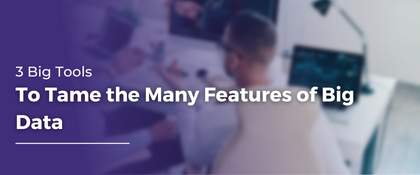Big Data As A Service: Is it Next in Line After Big Data?
Summary
Big Data as a Service (BDaaS) is a rapidly growing market, set to reach $88 billion by 2021. It involves outsourcing Big Data functionalities to the cloud, including analytics tools, real-time analysis, and advisory services. BDaaS relieves organizations of the complexities and investments required for in-house Big Data initiatives. Providers offer cloud storage, analytics engines, and tools to handle various data types. BDaaS's future holds applications in areas like health monitoring and sales, with companies using it for data infrastructure and targeted marketing. It's an innovative approach shaping the future of Big Data strategies.
Table of Content
Big Data as a Service—the term may not ring a bell right away, but it defines a profitable, fast-growing market that may surpass the popularity of Big Data very soon. Today, cloud-centric Big Data services are solving the data dilemmas of organizations worldwide. With this in view, it is forecasted that Big Data will touch the whopping $88 billion mark by 2021, with BDaaS hogging a fair share of the market. Similar to Infrastructure as a Service or Software as a Service, BDaaS is reliant on cloud storage for preserving continual organizational data access to relevant information.
Read on for a closer look at this new approach and how it’s working overtime for real-life businesses.
What is BDaaS?
Though there are no well-defined words for explaining this term currently, BDaaS loosely points towards the outsourcing of diverse Big Data functionalities to the cloud. This may range from supply of Big Data analytical tools for interrogating data via web dashboards or control panels to providing reports or carrying out real-time analyses. In addition, BDaaS providers are also offering consulting/advisory services in their packages.
Big data as a service (BDaaS) is basically the reliable delivery of information and statistical analysis tools by a third party. It helps companies understand and leverage the advantages of insights received from very large information sets; thereby gaining a competitive advantage. With a deluge of unstructured data being generated on regularly, BDaaS is freeing organizational resources by using the predictive analytics skills of outside agencies that are well equipped to handle and assess large datasets; which were so far managed by the in-house staff, BDaaS can either be offered in the form of software assisting data processing or contractual packages for hiring the services of experienced data scientists (Here's the perfect parcel of information to learn data science)
How is BDaaS useful?
Big Data outsourcing encompasses plentiful benefits, especially with regards to those involving large datasets. It’s true that Hadoop has managed to democratize Big Data to a certain extent with its open source software and off-the-shelf hardware being easily available for use; regardless of this Big Data initiatives require large scale investments in components and infrastructure. So, whenever a major initiative is launched, BdaaS providers aid organizations with substantial benefits with regards to time, labor and other resources. By using BDaaS, organizations can continue concentrating on their key areas of business operations, leaving the concerns of Big Data aside.
BDaaS providers offer cloud-based storage facilities, analytics engines, data crunching modules, data protection, tools and applications for handling all types of data—unstructured, semi-structured, and fully structured alike (also consider checking out this career guide for data science jobs).
Future of BDaaS
With innovative gadgets like Apple AAPL +2.64%’s Watch waiting in the wings, there is bound to be an influx of new BDaaS apps. This technology will be handling Big Data accumulation, analytics and all other metrics relevant to practical uses such as monitoring heart rates, remote controlling home entertainment of organizing social calendars. BDaaS’s role in the fields of sales and marketing is increasingly on the rise, with companies offering customer profiling services, direct marketing data, and potential customer leads too. Google GOOGL +2.16%’s AdWords and AdSense and Amazon’s AWS are classic examples of the practical uses of Big Data as a Service used by millions of businesses for hosting data infrastructure and targeting their marketing strategies at relevant niches.
Overall, ‘Big Data as a Service’ refers to a rock solid approach for implementing innovative Big Data strategies, with many more services emerging to support them. As the next step, we can only wait to see how it supports Big Data projects that were previously considered out of reach. But one thing is sure; we are going to hear a lot about BDaaS in future.





